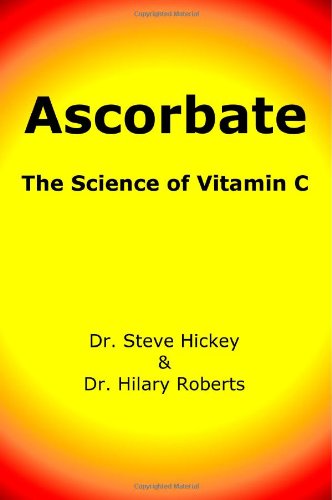Ascorbate: The Science of Vitamin C pdf download
Par williams anthony le samedi, juin 25 2016, 23:22 - Lien permanent
Ascorbate: The Science of Vitamin C by Steve Hickey Hilary Roberts


Ascorbate: The Science of Vitamin C Steve Hickey Hilary Roberts ebook
ISBN: 1411607244, 9781411607248
Format: pdf
Publisher:
Page: 264
Let's hope that its Cameron E, et al. Pauling makes it clear that he believes that people can have an extra 12-18 years of life if one takes 3,200 to 12,000 milligrams of vitamin C per day . To get your daily dose of vitamin C from just one potato. Human skeletal muscle ascorbate is highly responsive to changes in vitamin C intake and plasma concentrations. Patients who develop kidney stones should take sodium ascorbate as Vitamin C supplement and must avoid calcium ascorbate with calcium supplements. Once certain conditions have been screened for, it seems humans have enormous tolerance for vitamin C. Scientists at Plant & Food Research are investigating how vitamin C is made in plants and have identified the. Accordingly, the use of vitamin K3 (VK3, also known as menadione [3]) and vitamin C (VC, also known as sodium ascorbate [4]) alone or in combination (VK3: VC [5]) is highly promising in cancer treatment. A daily vitamin C intake equivalent to eating two kiwifruits a day is required to ensure our muscles maintain optimal levels. Bibliographic information: Anitra C Carr et al. They end by saying that now the scientists who produced the recent work in mice are now poised to explore the potential value of high dose vitamin C for the treatment of cancer in humans. Corroborating his assertions in a study of 11,000 Americans where he . In accordance with other scientific reports and our present data suggest that activation of NF-κB is linked to cell death signaling in Jurkat and K562 cells [16]. Yet, the precise pathway(s) by which VK3 and/or VC induce .. Supplemental ascorbate in the supportive treatment of cancer: Reevaluation of prolongation of survival times in terminal huma n cancer. Indeed, NF-κB transcribes pro-apoptotic genes such as p53. "Vitamin C is essential in the human body to ensure healthy cell function, but humans have to get vitamin C, or ascorbate, from their diet, as our primate ancestors lost the ability to synthesise it in the body," says Dr William Laing, lead scientist on the study.